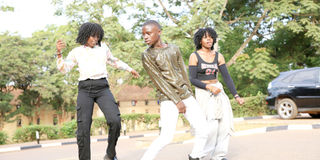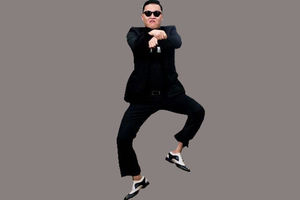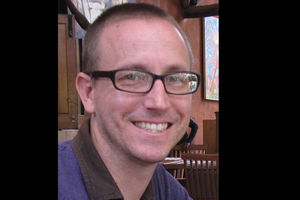
Some of the youth who graced the 2024 K-pop Festival at Makerere University. PHOTO/ABDUL-NASSER SSEMUGABI
Remember Gangnam Style, the song by a chubby rapping chap, which rocked the music scene in 2012? It is the fifth most-viewed music video on YouTube with an enviable 5.128 billion views, only behind Mark Ronson and Bruno Mars’ Uptown Funk, Wiz Khalifa and Charlie Puth’s See You Again, Ed Sheeran’s Shape of You and Luis Fonsi and Daddy Yankee’s Despacito.
Even after Park Jae-sang, aka PSY, fell from global stardom, Gangnam Style, the most popular K-pop song ever, was a milestone in spreading K-pop music to the world.
K-pop, or Korean pop, is a unique, trend-setting music genre that originated from South Korea. Few music lovers may know that K-pop reached USA in the 1950s, when The Kim Sisters, performed renditions of American pop songs phonetically. But the genre had never gripped international audiences more than in the 21 century.
Social media phenomena
The advent of social media made the evolution swifter as groups such as Blackpink, F.T. Island, g.o.d, among others, easily advertise their music videos with riveting performances on YouTube and Tiktok to global viewers.
“We are big fans of BTS, a K-pop music group; we watch their videos, practice their dance moves, and upload our versions on social media,” Rachel Karungi, manager of Smash Talent Kids Africa (STKA) told Arts & Leisure, after her group won the 2024 K-pop Dance Competition at Makerere University last Saturday.
One such video juxtaposes BTS and STKA dancing along to a song with unbelievable similarity in their moves. The 49-second video, uploaded on November 20, 2022, has attracted more than 12,600 views. With it is a description: If BTS ever needs backup dancers from Africa, we got y’all.
Such social media visibility earned STKA an invitation to the 2023 K-pop Festival, organised by the Embassy of the Republic of Korea in Uganda. Made of energetic and passionate youngsters, STKA finished second on their debut. Last weekend, despite fielding a much younger crew, they shouted in jubilation inside Makerere University’s Yusuf Lule auditorium, as winners, won a Shs3m shopping voucher. Mimicking BTS is bearing fruit.
BTS became a global brand the day it performed K-pop at the American Music Awards in 2017. The group would set the record for most Twitter engagements, grace the cover of Rolling Stone Magazine, record with big names such as Lil Nas X, among other milestones.
K-pop involves different genres: pop, hip-hop, rock, R&B, electronic, and dance. But the tunes are rooted in traditional Korean music. And if you do not listen carefully, you may think the lyrics are in English, but Korean is the dominant language.
By introducing the K-pop Dance competition, the Korean Embassy wanted to popularise another aspect of Korean culture to Uganda after taekwondo, but many youth seem to be some steps ahead.
Dancing for education
Sam Muzuula, manager of Drumline Dancers, based in Bulenga-Gogonya ghettos, on Mityana Road, first watched the K-pop festival on NTV last year. He searched for contacts and how to join. “But we did not know that during the competition, you dance exactly like those in the original Korean song,” he said after his group finished third, behind STKA and M27 and took a Shs500,000 shopping voucher.
“We used it to buy scholastic materials for our destitute members resuming school.”
For a group that has been shortchanged after appearing in adverts for big companies and music videos, Shs500,000 is something. “I only wish it was cash, I would have used it to pay school fees installments for some children,” Muzuula said.
Karungi, the STKA manager, had the same concern. “Shs3m would have done much as school fees. I hope next time the organisers consider that.”
Since 2017, STKA was created under the theme “Dance for Education,” to support many talented children in Nabweru slums in Nansana Municipality, whose parents could not afford their education. Now STKA has more 30 children who specialise in music, dance, and modelling.
Jovan Katende, 9, Love Nsubuga,7, and Duncan Katumba,8, some of the performers at Makerere, have also featured in music videos of prominent musicians and danced at different events. “The little we get from such gigs pays school fees and other life needs,” Karungi said. “We need more such gigs.”
Speaking Korean
Park Sung-soo, the Korean ambassador in Uganda, said the Korean language is the vehicle that carries Korean pop culture to the world.
The K-pop festival included an online Korean language contest, with the topic: “What I would present at the Korea Africa Summit in front of African leaders and the President of Korea.” Once again, Emily Katooko won, and took a Samsung Galaxy Tab, while Ukasha Kabanda and Faith Kobusingye, second and third, got Samsung smartphones.
“Korean language is easy to learn,” said Katooko, who studies Korean at Makerere University. “I got interested in Korean after watching Korean movies. I also found Korean-translated literature deeper than the Western stuff. Now I read directly in Korean.” Next year, Katooko wants to get a scholarship to study for a Masters in Korean language in Korea.
My Korean dream
“Today’s competition was really tough. People danced and sung passionately,” Gloria Kayiwa, a Senior Four student at Kitende Secondary School, who finished fourth in the K-pop dance admitted.
“I love Korean people. I want to have many Korean friends. I like relating with them and their music. And I want to one day perform in Korea,” Kayiwa said, echoing Muzuula’s dream for his ghetto dancers like Edrine Gumisiriza, 16, Margret Babirye, 12, Amina Nalubega,12, among others.




